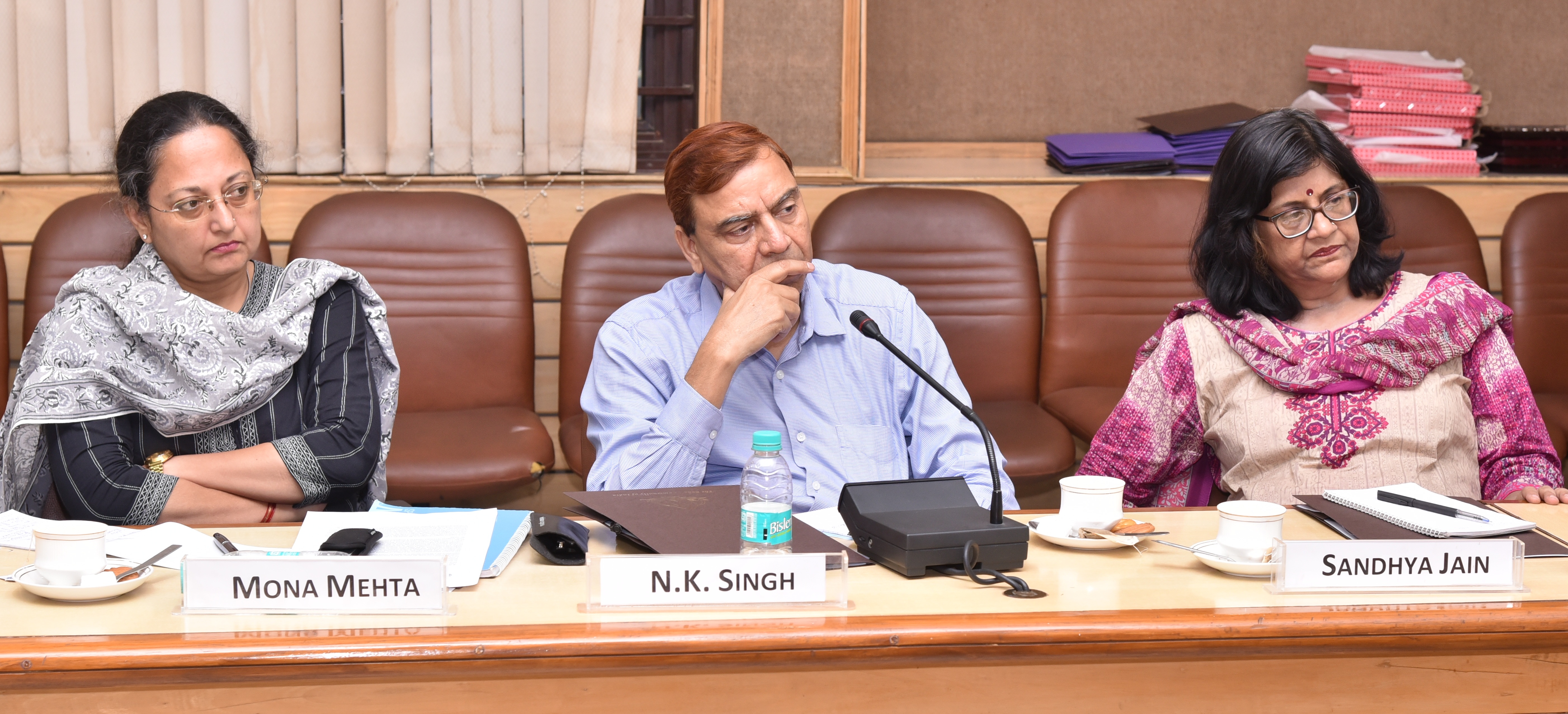
دهلینو — پوشش موضوع دین توسط رسانهها چگونه میتواند به فهم بهتر و ایجاد هماهنگی اجتماعی کمک کند؟ این سؤال در کنار دیگر پرسشها در یک نشست فعال و پویا مطرح شدند که یکی از میزبانان آن جامعۀ بهایی هندوستان بود و روز شنبه در دهلینو برگزار شد.
در این نشست، این موضوع مورد توجه قرار گرفت که چگونه رسانهها در اغلب اوقات، ایمان و اعتقاد را تنها با جلوههای منفی رفتار دینی مانند خرافات، تعصب، سرکوبگری و محرومیت ارتباط میدهند. با موج در حال افزایش تندروی دینی در دهههای گذشته، خشونت مذهبی توجه بسیاری را در رسانهها به خود جلب کرده است.
با این حال، دین پدیدهای وسیع و چندبعدی است و کمکهای سازنده و متعدد دین به جوامع و تمدن در گفتمانهای عمومی و رسانهها نادیده گرفته میشوند. سخنرانان میزگرد روز شنبه که شامل شخصیتهای برجسته رسانهها، مسئولین دولتی، دانشگاهیان و نمایندگان دینی بودند اعتقاد داشتند که این واقعیت بهخصوص در اجتماع هند مصداق دارد.

بر اساس سخنان آقای کی. جی. سورش (K. G. Suresh)، مدیرکل موسسه ارتباطات جمعی هندوستان (IIMC)، بخشی از مشکل، عدم درک صحیح اصحاب رسانه از دین است. آقای سورش در سخنرانی آغازینش به عنوان ناظم این نشست در روز شنبه گفت: «خبرنگاران باید ماهیت حقیقی دین را درک کنند و بر این واقف باشند که دین در ایجاد محبت و وحدت نقش دارد و پرورانندۀ اخلاق و حسن رفتار است. دین نباید با اعمال افراد به ظاهر دیندار که از مردم بهرهکشی میکنند و به اقدامات مجرمانه مشغولند یکی دانسته شود. خبرنگاران باید بر اخبار دوستی و همزیستی مسالمتآمیز میان افراد از جوامع دینی مخالف تمرکز کنند و تنها به دنبال یافتن موارد اختلاف و تنش نباشند.»
سخنرانان این میزگرد برخی از چالشهای مربوط به مدل کنونی رسانهها را بررسی کردند. برای مثال این نکته مورد توجه قرار گرفت که انتشار اخبار، اغلب بر اساس برانگیختن احساسات خوانندگان صورت میگیرد. سرعت انتشار اخبار اغلب نیاز به عمیقتر شدن در موضوع، دقت در خبر، و نکات ظریف موضوعی به پیچیدگی دین را تحتالشعاع قرار میدهند. سخنرانان در عین شناسایی نقایص رسانههای فعلی، اذعان کردند که یافتن مسیری به پیش آسان نیست. یک جمعبندی اصلی بحث این بود که خبرنگاران احتیاج به نشستهایی دارند که در آنها بر نحوۀ فعالیتهایشان و تأثیر آنها بر برداشتها و رفتار افراد تأمل کنند.
این گردهمایی با عنوان «پوشش خبری دین با درایت و حساسیت در یک دنیای به هم وابسته» با همکاری «موسسۀ ارتباطات جمعی هندوستان» (IIMC) و دفتر روابط عمومی بهائیان هندوستان در محل این موسسه در دهلینو برگزار شد.
خانم نیلاکشی راجخووا (Nilakshi Rajkhowa)، مدیر دفتر روابط عمومی بهائیان هندوستان گفت: «ما در تلاش هستیم تا همراه دیگران بیاموزیم که چگونه اصول روحانی و معنوی موجود در ادیان عمده میتوانند برای تحول در افراد و اجتماع، و بهبود دنیا به کار گرفته شوند. با توجه به قدرت زیادی که رسانهها در شکلدهی بینش اجتماعی و گفتمانهای عمومی دارند، جامعه بهائی هندوستان و «موسسۀ ارتباطات جمعی هندوستان» (IIMC) احساس کردند نیاز مبرمی به گفتگو با متخصصان حوزۀ رسانه دربارۀ نحوه پرداختن آنان به دین وجود دارد.»
در این نشست، خبرنگاران رسانههای نوشتاری، صوتی و تصویری به وضوح دربارۀ چالشهائی که به نظر آنها در گزارشنویسی در ارتباط با دین وجود دارد صحبت کردند که از جمله آنها پوشش بیش از حد تنش و درگیری و کمبود پرداختن به الفت و دوستی میان گروههای دینی است. تعدادی از سخنرانان به این بحث پرداختند که در هندوستان که دین نقش پررنگی در زندگی افراد دارد مسئولیت رسانهها برای پوشش موضوع دین به نحوی دقیق و فکر شده اهمیت ویژهای دارد و بر نحوۀ فهم گروهها از ارتباطشان با یکدیگر و در مقیاس بزرگتر با اجتماع تأثیر میگذارد.
دکتر چندان میترا (Chandan Mitra) یکی از سخنرانان این نشست که از اعضای پارلمان و ویراستار و مدیر روزنامۀ پایونیر (The Pioneer) است در مورد نیاز به درک تأثیر منحصر به فرد دین بر اجتماع صحبت کرد و گفت: «اگر هدف ما داشتن یک اجتماع ارزش-محور است، نمیتوانیم دین را نادیده بگیریم. دین به ما حس پارسائی یا اخلاقیات میدهد.»
خانم راجخووا در مورد این برنامه گفت: «خبرنگاران میتوانند از چنین فضاهایی برای تفکر و تأملی عمیق و آگاهانه دربارۀ حرفهشان استفاده کنند». «موسسه ارتباطات جمعی هندوستان» و جامعه بهائی این کشور قصد دارند گفتگو دربارۀ دین و رسانه را به صورت رشتهای از میزگردها در سال آینده ادامه دهند.